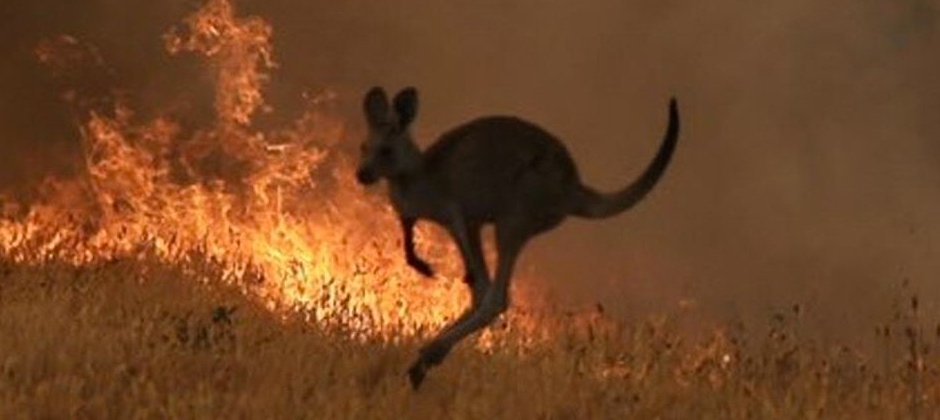The temperatures of the Earth are increasing and land is on fire, demonstrating just how high the cost of climate inaction can be. Flying in the face of climate doubter within Scott Morrison’s government, who continue to dispute the science suggesting Australia’s bushfire crisis has nothing to do with climate change, new polling from The Australia Institute (TAI) shows the cataclysmic bushfire season has intensified Australians’ concern about climate change and its impacts.
Almost four fifths of Australian (79%) are concerned about climate change, an increase of five percentage points from July, TAI found in its latest Climate of the Nation polling, which surveyed 1,033 Australians between January 8 and 12. One in two Australians (47%) are “very concerned” about climate change, up 10% since July, and 57% say that we are experiencing “a lot” of climate change impacts in Australia, up 14% since the last survey.
“The bushfire crisis has intensified concern about climate change for many Australians, a majority of whom think the country is experiencing the impacts of climate change right here and right now,” said Ebony Bennett, deputy director of TAI. “Almost seven in ten Australians see the clear link between the bushfires and climate change and they want the government to lead on climate action.”
Almost three-fours of Australians (73%) agree leadership on the bushfire response requires the Prime Minister to lead on climate change action, while 33% say the federal Coalition government has done a good job managing the climate crisis. Two thirds of Australians (66%) agree the current bushfire crisis demonstrates the cost of inaction on climate change, and nearly the same percentage (67%) say climate change is making bushfires worse.
“There is also a clear emotional toll, and the distressing images of dead and injured wildlife and charred forests have left most Australians worried that the bush will never be the same again,” Bennett said. But, understanding worsening extreme weather has to be central to any recovery plan.
As confirmed last week by the official data released by the Bureau of Meteorology, 2019 was both the warmest and driest year on record for Australia, with the average mean temperature 1.52 °C above average. “…Australia’s climate has warmed by more than a degree since 1910, which means very warm years like 2019 are now more likely to occur, while the trend in recent decades has been for drier winter and spring seasons in the south,” Bureau of Meteorology head of climate monitoring Karl Braganza said.
According to a global climate report, 2019 was the second hottest year on record for the planet, and the hottest year ever recorded for ocean heat content. The National Oceanic and Atmospheric Administration (NOAA), the peak US scientific agency, has released its Annual Global Climate Report, confirming what many experts had predicted.
“If it seems like we are reporting on a new climate record being broken week after week, it’s because the planet is getting hotter and hotter. It’s a frightening reality,” said Climate Councillor Professor Will Steffen. “While bushfire smoke has drawn a toxic veil over Australian skies, the scientific evidence is as clear as day.”
Nine of the ten hottest years globally have occurred since 2005, with 2016 being the hottest on record. “The record heat is a warning. The experts have been telling us for decades that it will get hotter and weather events will get more extreme. The fires, the heat and the smoke must serve as a massive wake up call. We must heed the warnings. To protect Australian communities we must phase out coal, oil and gas, the drivers of climate change,” said the Climate Council’s CEO Amanda McKenzie.
This content is protected by copyright and may not be reused. If you want to cooperate with us and would like to reuse some of our content, please contact: editors@pv-magazine.com.









By submitting this form you agree to pv magazine using your data for the purposes of publishing your comment.
Your personal data will only be disclosed or otherwise transmitted to third parties for the purposes of spam filtering or if this is necessary for technical maintenance of the website. Any other transfer to third parties will not take place unless this is justified on the basis of applicable data protection regulations or if pv magazine is legally obliged to do so.
You may revoke this consent at any time with effect for the future, in which case your personal data will be deleted immediately. Otherwise, your data will be deleted if pv magazine has processed your request or the purpose of data storage is fulfilled.
Further information on data privacy can be found in our Data Protection Policy.